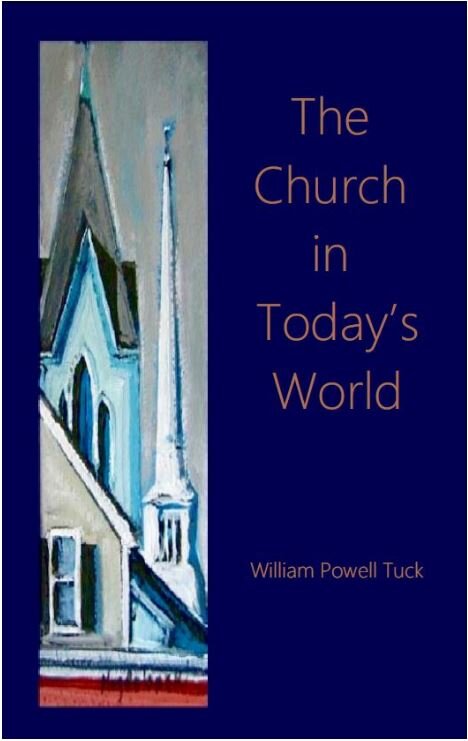The Church in Today's World | William Powell Tuck
The Church in Today's World | William Powell Tuck
The Church has been under attack for centuries, but probably few times in its history have the threats against the church’s survival been as subtle and compelling as today. Many are seeking to rewrite the Church’s agenda and equate it with their secular needs. Others are espousing a “prosperity gospel” as the menu for the Church today. Others see the Church as merely an extension of their social needs and as a private club to foster their style of life. Others are interested only in the Church growing, no matter how it grows. Numbers are the only important thing to them. Few today realize the radical and revolutionary nature of the Church which our Lord founded and the call he issued for a dynamic allegiance to him and the life-changing commitment he demands of any who would identify with him and his way of discipleship.
Hans Kung has noted that there has been much talk about the Church in the secular world, but he believes that there is no corresponding awareness of what the Church is. “One can only know what the Church should be now,” Kung affirms, “if one also knows what the Church was originally. This means knowing what the Church of today should be in the light of the Gospel.”[i] This has to be addressed, I believe, by affirming that the Church was founded by Jesus upon the faith and witness of Peter and the other apostles. The Church has even been called “the New Israel,” (Mark 14: 58), the New Covenant,” (1 Cor. 11: 25), (Heb. 12:24), “the Realm of Redemption,” (Eph. 2:20-22), “the Bride of Christ,” (Rev. 22: 9), the “body of Christ” (1Cor. 12:27, Rom. 12: 5, Col. 1:8, Eph. 4:12) or the continuing Incarnation of Jesus in the world (Eph. 1: 23), and the “temple of the Holy Spirit (1Cor. 6: 19, Eph. 2: 21). Jesus assured the Church that where two or three gathered in his name, he would be among them (Matt. 18: 20). The writer of the Letter to the Hebrews reminded the early Christian followers “not neglecting to meet together” (Heb.10: 24-25).
In these pages I want to affirm what I believe is the biblical concept of the Church, its nature, function, and purpose in the world. I want to testify to what I believe is right with the Church and seek to examine anew what our Lord intends for his Church to be and do. The Church today is not a perfect instrument in service for Christ and it never has been. Although some have boldly spoken about the demise of the Church, and it is apparent that many mainline churches have drastically declined in attendance and offerings in recent years, there has been, nevertheless, a resurgence of charismatic and conservative churches. The Church always seems to be dying to some, but it never has nor do I believe it will. My now deceased friend, Cecil Sherman, used to say “I have a life-wish for the Church.”[ii] And so do I. I want the Church to thrive and be productive in its ministry for our Lord. And that is what I am about in this book-- a life-wish for the Church. I have committed my life to being a servant minister in the church. I love the Church and want to advance its ministry in the world as we seek to follow our Lord. I write these pages as one who is inside the Church and believes in the authentic Church which our Lord founded. In these brief pages I offer some suggestions on how we can strive to be the Church in today’s world.
I want to express my appreciation to Carolyn Stice who served for ten years as my secretary and who first helped me to get my thought onto paper. A special word of appreciation is also due Linda McNally who proof-read these pages for me. I send these chapters out with the prayer that it will enable all who read these pages to serve more faithfully in the Church.
[i] Hans Kung, The Church (New York: Sheed and Ward, 1967), ix.
[ii] Cecil Sherman, By My Own Reckoning (Macon, GA: Smyth & Helwys, 2008), 5.
